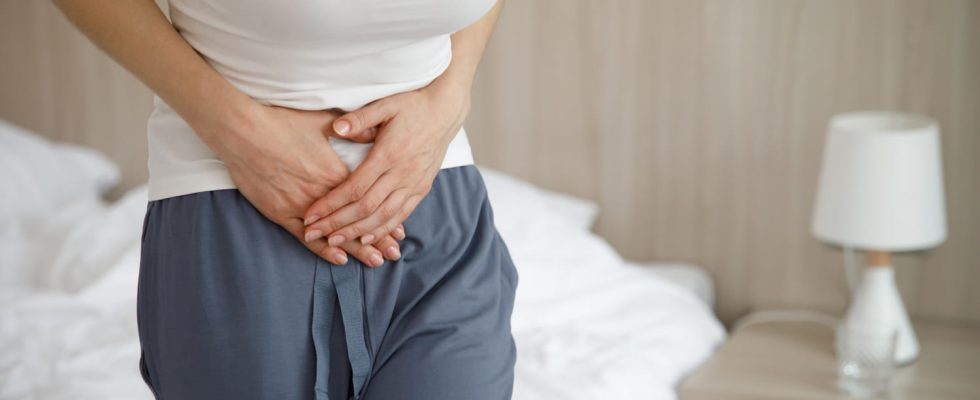25% of women are affected by recurrent cystitis. The diagnosis makes it possible to find the appropriate treatment for the cause. What are the symptoms ? How to avoid recurrent cystitis?
Repeated cystitis (or urinary tract infections) are recurrent episodes of acute cystitis. They cause many inconvenience (frequent urges to pee, pain and burning). It is necessary that consult in case of cystitis recidivist. Several treatments may be offered depending on the cause. A few basic rules help prevent recurrent cystitis. What are the symptoms recurrent cystitis? How to avoid them? What treatments to treat recurrent cystitis?
Definition: what is recurrent cystitis?
Acute cystitis is defined by the occurrence ofat least 4 episodes of urinary tract infection during a period of 12 consecutive months. 20 to 30% of women who have had acute cystitis have a recurrence of cystitis. Among them, 25% will have recurrent urinary tract infections. However, there is a fairly large gap between women who have 6 cystitis per year and others 40.
What is a persistent male urinary tract infection?
In men, urinary tract infection is a pathology very different from cystitis in women. Men have urinary tract infections caused by prostatitis (due to anatomical malformations of the urinary tract).
What are the causes of recurrent cystitis?
“There are factors favoring repeated cystitis: menopause, malformations of the genitourinary system, urinary stones, lack of urination or hydration, constipation” informs Pr Franck Bruyère, urology surgeon. Some women have cystitis after every sexual intercourse. These cystitis are said post-coital. However, there is not always a cause for recurrent cystitis.
A cytobacteriological examination of the urine (ECBU) is indicated in case of recurrent cystitis. Other tests may be done to see if there are urological risk factors. A ultrasound for example should be done to determine if there are urinary stones or post-void residual (meaning that the person does not completely empty their bladder during urination).
What are the symptoms of recurrent cystitis?
Recurrent cystitis are episodes of acute cystitis that are repeated, each time with the symptoms of urinary tract infection: pollakiuria (frequent urge to urinate), burning while urinating, suprapubic pain. A hematuria or cloudy urinemalodorous can be associated.
Routine urination after each sexual intercourse is recommended
Below 12 annual cystitis, these are treated with short courses of antibiotics. Beyond 12, “a long-term antibiotic treatment in small doses can be prescribed provided that you have tried before to reduce the number of attacks by other measures. This is a antibiotic cyclea variant of low-dose antibiotic treatments” explains Professor Franck Bruyère. It is essential to look for a possible cause and treat it: urinary stones, lack of emptying of the bladder… “The cranberry at the right dose has a real effectiveness on recurrent cystitis to Escherichia coli” indicates the urological surgeon. Cranberries contain proanthocyanidins (PAC) which prevent this bacteria from attaching to the walls of the bladder. The effective dose should be 36mg of PAC per day. “A randomized French study has just been released on this subject and shows that it is effective in a 3-month cure” says Professor Franck Bruyère. “D-mannose also showed efficacy. A vaccine that works more like an immunotherapy by stimulating immunity is being validated in France” he adds. After the menopause, local hormonal treatment with vaginal eggs (Trophigil©) can prevent repeated urinary tract infections.
Rules of life help prevent recurrences of urinary tract infections when no contributing cause is found and treated: urinate regularly throughout the day and avoid holding back, drink 1.5 liters of water a day, always wipe from front to back after having a bowel movement, have good food hygiene allowing regular intestinal transit, carry out once a day a external intimate toilet. When it comes to recurrent post-coital cystitis, urinating systematically after each sexual intercourse is recommended. Constipation treatment is put in place when constipation is the cause of recurrent cystitis.
Thanks to Professor Franck Bruyère, urology surgeon at the University Hospital of Tours.
